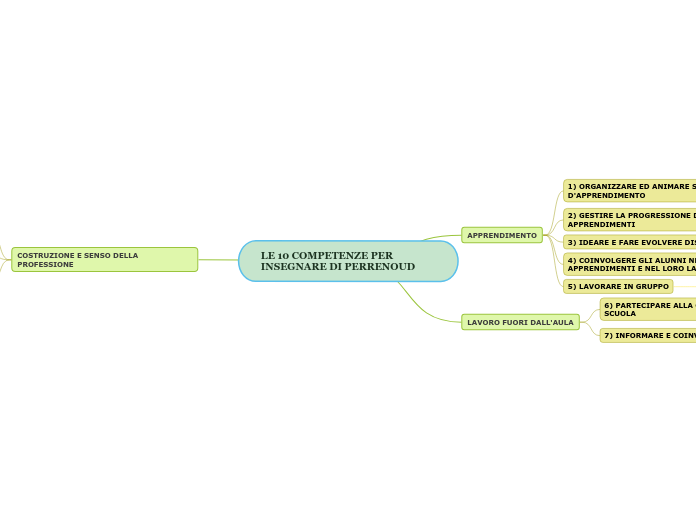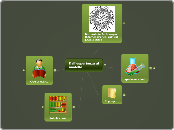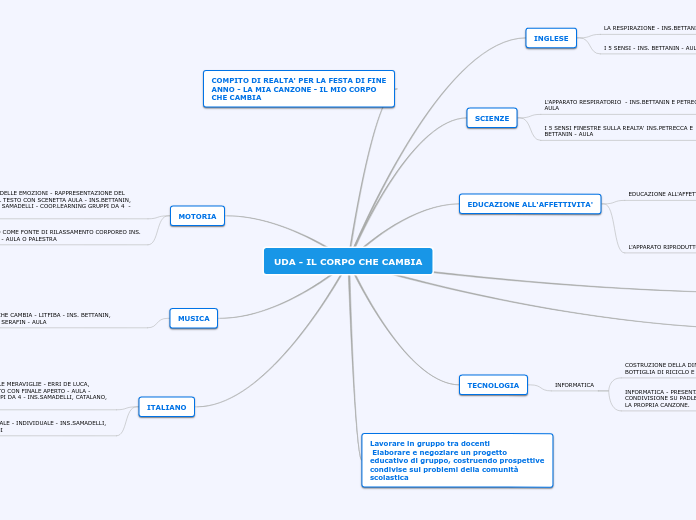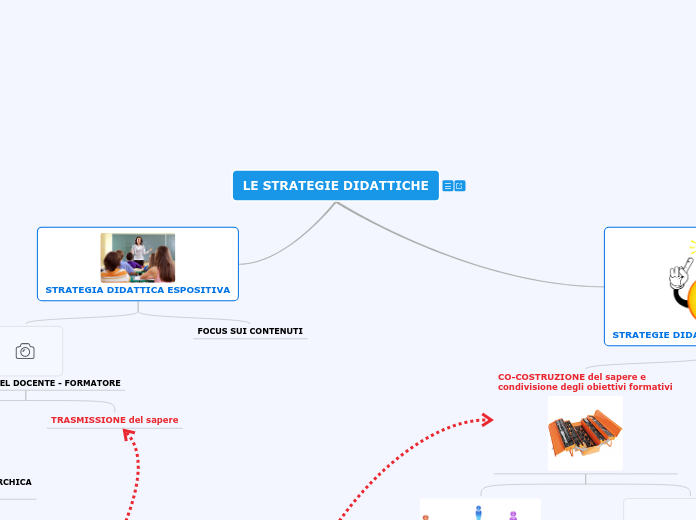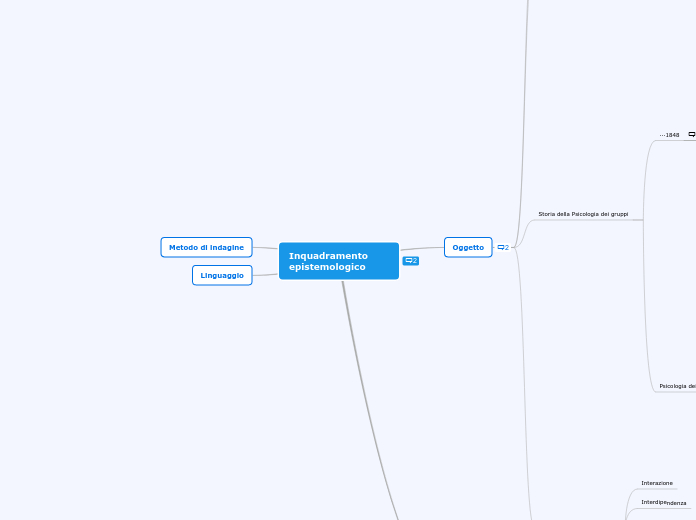LE 10 COMPETENZE PER INSEGNARE DI PERRENOUD
Tenses demonstrate the time of actions centered around the subject of the sentence. These actions are called verbs and change according to tenses.
COSTRUZIONE E SENSO DELLA PROFESSIONE
There are four Future tenses:
- Future Simple ('with Will' and 'with Going to')
- Future Continuous
- Future Perfect Simple
- Future Perfect Continuous
10) GESTIRE LA PROPRIA FORMAZIONE CONTINUA
L'insegnante è tenuto a modificare la propria professionalità per restare al passo con ogni generazione.
9) AFFRONTARE I DOVERI E I DILEMMI DELLA PROFESSIONE
Future Continuous is used:
- for an action that is likely to happen in the future and continue for an expected length of time
- for an action that will be in progress at some point in the future
- for action verbs (e.g. running)
- for predictions about future events
Adverb used with Future Continuous:
- tomorrow (e.g. tomorrow at 5 o'clock)
Ogni insegnante deve tener conto dell'albo professionale dei docenti.
8) SERVIRSI DELLE NUOVE TECNOLOGIE
Future Simple is used:
- to predict an event in the future
- to invite
- to give orders
- to express willingness
- for actions that have not yet occurred but that will occur at a future date
L'insegnante, in quanto tale è tenuto a utilizzare le nuove tecnologie.
LAVORO FUORI DALL'AULA
There are four Past tenses:
- Past Simple
- Past Continuous
- Past Perfect Simple
- Past Perfect Continuous
7) INFORMARE E COINVOLGERE I GENITORI
Past Continuous is used for:
- an action that happened before another action in the past
- an action that started in the past and continued up to a given time in the past
- an action done several times up to a point in the past and continued to do after that point
- an action that happened in the past but is important at the time of reporting
Some adverbs used with Past Continuous:
- always, only, never, ever, still, just
Creare un rapporto istituzionale e una comunità educativa così da raggiungere la formazione di ogni alunno.
6) PARTECIPARE ALLA GESTIONE DELLA SCUOLA
Past simple expresses:
- an action that happened in the past and has no connection with the present
- an action that happened once in the past
- an action that happened regularly in the past
- an action that was true for some time in the past
- an event or action that already occurred
- an action that is finite - has both a starting and a stopping point
Some adverbs used with Past Simple:
- yesterday
- last month, last year
- ago (e.g. two days ago)
- in (e.g. in 1997)
- never, always, seldom, often, frequently, occasionally, once, twice
Riuscire ad avere una visione generale del territorio in cui si colloca la scuola.
APPRENDIMENTO
There are four Present tenses:
- Present Simple
- Present Continuous
- Present Perfect
- Present Perfect Continuous
5) LAVORARE IN GRUPPO
Creare attività di gruppo dove ogni alunno si senta partecipe
4) COINVOLGERE GLI ALUNNI NEI LORO APPRENDIMENTI E NEL LORO LAVORO
Lo studente consapevole affronta il percorso di apprendimento.
3) IDEARE E FARE EVOLVERE DISPOSITIVE
Present Perfect is used for:
- an action that occurred at a time which is indefinite and has its effect on the subject
- an action that occurred many times and has the possibility to occur in the present/future
- an action that began in the past and is still going on in the present
Some adverbs used with Present Perfect:
- just
- already
- yet
- for
- never/ever
- up to now
L' eterogeneità della classe è centrale.
2) GESTIRE LA PROGRESSIONE DEGLI APPRENDIMENTI
Present Continuous is used to indicate the ongoing time (now).
Some adverbs used with Present Continuous:
- now, right now
- at this moment
- at the moment
- continually
- perpetually
- this year
- this season
- forever
L' insegnante nel corso dell'attività prende nota delle capacità acquisite dagli alunni.
1) ORGANIZZARE ED ANIMARE SITUAZIONI D'APPRENDIMENTO
Present Simple is used for:
- habits
- general truths
- repeated actions of events
- fixed arrangements/timetables
- feelings/opinions/beliefs
- instructions.
Some adverbs used with Present Simple:
- always
- usually
- seldom
- never
- sometimes
- often
- frequently, generally
- habitually, occasionally
- once, twice
L' insegnante avente la piena padronanza della disciplina coinvolga attivamente gli studenti.
Interrogative form:
Do + Subject (I, You, We, They)+ V1 (First Form of Verb)
Does + Subject (He, She, It)+V1 (First Form of Verb)
Example:
Do I write?
Do you write?
Does he/she/it write?
Do we write?
Do you write?
Do they write?
Type in your own example of a Present Tense verb, interrogative form.
